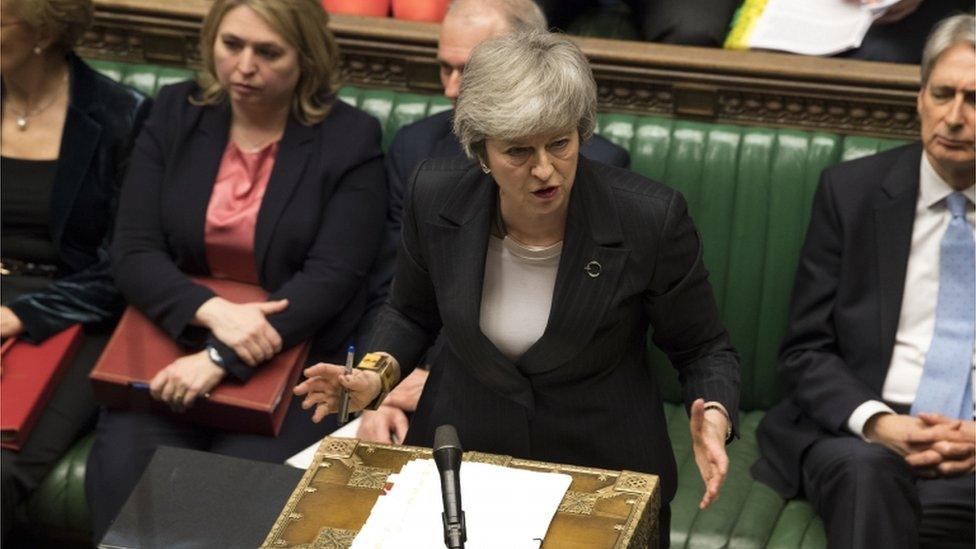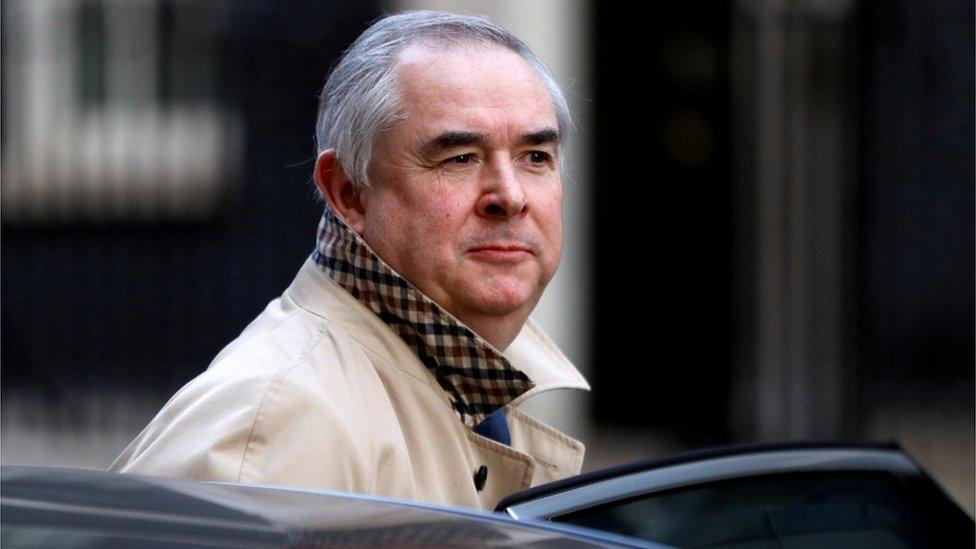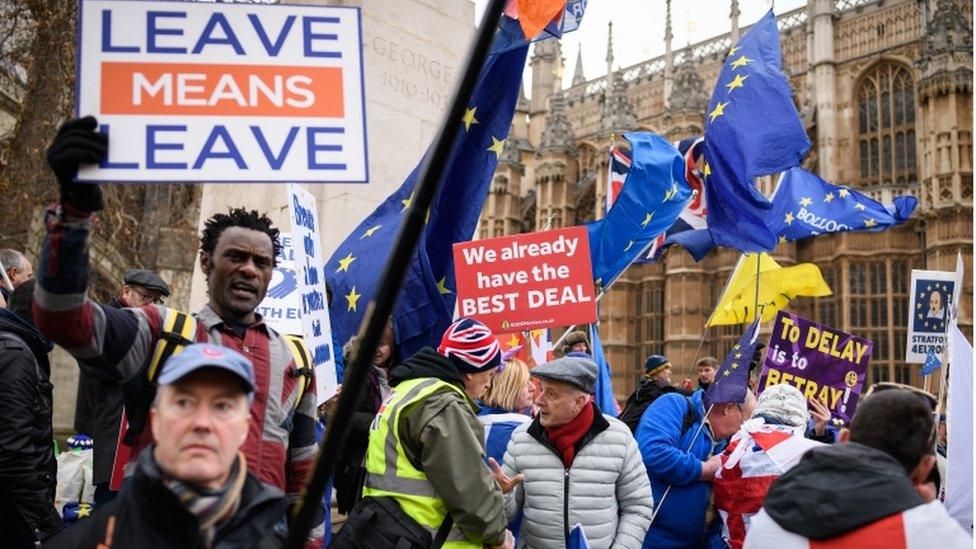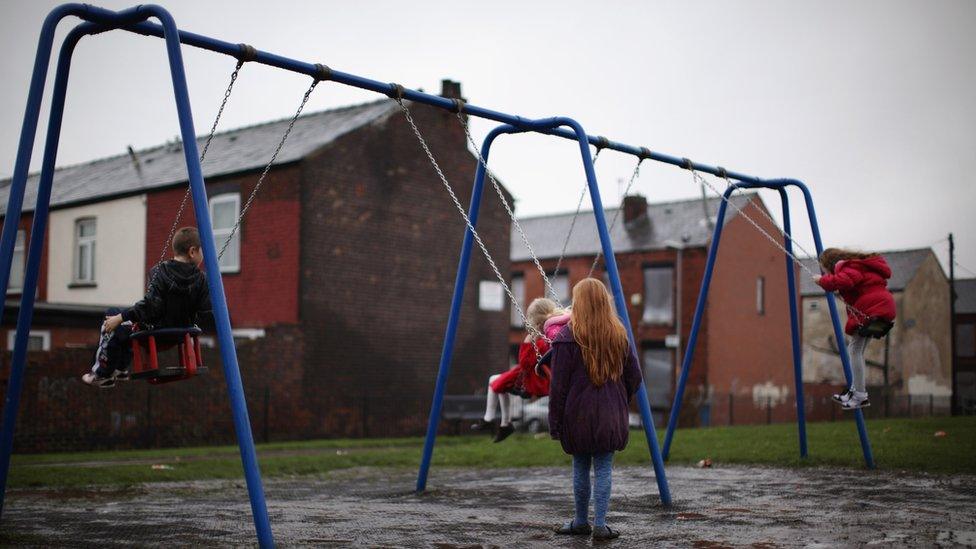Brexit: Does anyone really know what happens next?
- Published

"What happens next? Anyone who tells you they know is lying."
That's about as frank as it gets, from a cabinet minister, who, like everyone else, is trying to work out it.
Next week the prime minister is going to have another go at getting her deal through Parliament, which would reverse a record defeat of over 200 votes.
She's going to try with, she hopes, a new piece of legal and verbal gymnastics from her attorney general that is proving extremely difficult to nail down.
Number 10 is trying too, with a series of promises on issues like workers' rights to Labour MPs, and a cash fund that will be up for grabs for constituencies around the country, that have lost out to greedy urban giants.
But the mood is not good around the government.
Only one minister this week has told me they believe the deal will get through.
Most others reckon it has almost no chance, even with extra assurances procured by the attorney general, even with those extra inducements promised to Labour MPs who, for many months, Number 10 had hoped would come across to their position, in the end.

Attorney General Geoffrey Cox has been in Brussels to push for further changes to the Brexit deal
This all could change, and change quickly of course.
Who knows, Geoffrey Cox, with his booming voice and unusual turn of phrase, (please don't mention the codpiece) might perform a miracle in the next 72 hours and produce more than is expected, something that's more than a flimsy fig leaf that a group of Eurosceptic MP lawyers are prepared to dismiss.
At the moment, that seems unlikely, so conversations are frantic in Westminster about what happens when, not if the vote falls again.
Not inevitable
Remember the government has already spelled out a timetable for a domino of votes.
If Tuesday's another disaster for the PM, will MPs vote on Wednesday to remove the possibility of leaving at the end of the month if there is no deal?
It's extremely likely. Will they then vote next Thursday to agree that the government needs therefore to ask the EU for an extension?
Likely, but not inevitable. And right now the government won't even reveal how its own ministers will vote if we get to that moment, or indeed, if they will actually try to instruct their MPs which option to choose.
One minister, Tobias Ellwood, is already demanding publicly that they be allowed to vote as they wish.
Two others tell me it's inevitable, one minister saying it's the only way that the prime minister can carry on with a "functioning government".
Think about that for a moment.

Imagine the government not actually taking a party position on such a vital question.
Which way would the prime minister move, I ask her colleagues. They don't know, comes the answer.
One says, they simply can't imagine a Tory prime minister voting to allow leaving the EU without a deal, with all the economic risk that implies.
But another suggests, how could she possibly vote to stop a no-deal Brexit, given for so long it has been a deliberate part of her strategy to keep that option alive?
And if there is a vote to extend the whole process, what would it be for?
Ministers aren't collectively sure of that either.
For some of them, it's a chance to force Number 10 to find a new consensus for a softer Brexit.
Some believe there is merit still in the idea of having so called "indicative votes" afterwards, where different groups of MPs would put forward different ideas and models for Brexit, to find an eventual winner in Parliament.
For others, it's the moment to move decisively towards what's become known as "managed no-deal" - where a series of individual agreements are struck in different areas over time.
Its supporters believe it's more viable than one "wham bam" enormous deal that will always be flawed.
Its many detractors believe it is not much short of insane. The EU would, of course, have to approve extending the process too.
Enormous choices
Among all the chatter in the last couple of days, all the gaming what and if might happen next week, there is a huge sense of frustration at the mystery that still surrounds much of the prime minister's own position.
Parliament will, next week, face enormous choices if the deal falls.
What will she do? Her colleagues, and no doubt much of the country, would like to know.
And if there is delay, if part of the prime minister's negotiating strategy, the no-deal option, has been removed by Parliament, there is a fear in some parts of government, that in seven days' time, they may have genuinely lost control.
With the usual caveats, Brexit's been unpredictable all along and the mood round here changes more quickly than the weather.
But next Tuesday, Wednesday and Thursday, MPs do actually have to make decisions, that could deeply affect Theresa May, and more importantly, us all.
- Published30 December 2020

- Published4 March 2019

- Published28 February 2019
